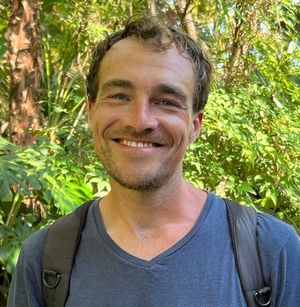There is something in the water.
This old phrase provides an explanation for the appearance of symptoms of mass hysteria, or peculiar behavior, amongst a group of people sharing some plot of land and water supply.
How else can a group of otherwise sane, supposedly normal and respectable people suddenly lose their minds all at once?
Such a question appears to be less than hypothetical in our time. Suicide rates are skyrocketing across the wealthiest regions of the world. America is plagued by mass shootings. Opioids and alcohol are preferred by those who like their suicide slow methodical instead. Our political discourse has degenerated on all sides into hateful rhetoric, and our interpersonal relationships have all but disappeared, if we are to believe the statistics about our loneliness epidemic, which has become undeniable in the aftermath of the pandemic.
America, Europe, and Japan all share in the same form of this comprehensive malaise. The local tastes may vary, but there is something in the water.
Latin America, Africa, the Middle East, and the rest of Asia continue having their old problems: authoritarianism, street violence, ethnic conflict, corruption. But in the past, sane individuals in those societies could choose to leave if they wanted to escape those conditions. Now, it seems there is no place to go--not merely because of the rising political sentiments about immigration. There is just quite literally no place to go.
In politics, there is equally no place to go. The choice is between insanity and lunacy, between cancer and train wreck, between suicide and homicide.
Most of the time, such descriptions from third-way political groups talk about how both sides are equally wrong. In order to understand the situation in which we find ourselves, we should also consider how both sides are right.
The clearest way to describe this phenomenon is that both sides in our political systems are right about their opponents, and wrong about themselves. This is why the problem grows even whilst everyone is aware that the problem is growing. One faction sees what is wrong with their opponents, and the facts actually do materially support the accusation. But when it comes to themselves, they refuse to examine the facts, since it is so easy to delude oneself into the belief that those facts are just the propaganda of the opposition.
The situation is reminiscent of a parable I once heard. The parable goes something like this--
A man was visited by an angel in his sleep, and in his dream he was given a vision of hell. Hell was a long dining table, full of the most delightful foods and the highest quality wines. All of the residents of hell were seated at the dining table, but there was a catch. Everyone's arms were replaced with an over-long spoon on the right, and an over-long fork on the left. Due to their length and rigidity, the utensils could not be used to feed oneself, and so the residents of hell suffered the miserable agony of hunger while in the very middle of a feast that surpassed anything they could have hoped for in their life on earth.
The man was then transported by the angel upward to heaven, and to his surprise, he encountered the exact same scene. The same dining table, the same delicious food, the same over-long spoons and over-long forks as replacement for arms. But then he noticed it was not exactly the same. There was one difference. Instead of trying in futility to feed themselves, they were feeding each other.
To our jaded and cynical minds, this parable may sound quaint and trite. The thought of such a heaven undoubtedly sounds beyond the possibility of belief in our toxic climate today. But on one point, the most extraordinary cynic will be forced to agree: we are living in precisely that hell.
Dante rightly described the entrance to hell as having a sign hung at its door "Abandon all hope ye who enter here."
It is hopelessness that drives humans to kill, whether suicide or homicide, slowly or quickly, directly or systematically, individually, or collectively.
The late psychiatrist and writer M. Scott Peck defined evil as "that which seeks to destroy life or liveliness." By this definition, we most certainly live in an age of evil.
Liveliness is inconceivable to the opioid addict in Kansas, or the gay teenager in Russia. It is inconceivable to the Syrian refugee in a concentration camp in Hungary, a Muslim in a reeducation camp in China, or a young girl in Caracas who has seen all of the members of her family murdered.
Liveliness could not possibly describe the lonely elderly who are shunned from society because they remind us of our own mortality, and have otherwise outlived their "usefulness." It does not describe the average middle class Westerner who understands the standard of living of their parents will be unattainable for them. It does not describe the minimum wage-earning Amazon warehouse worker or the suicidal Foxconn worker whose alienated existence rivals the Amazonian tribespeople watching their sacred forests clear-cut for cattle pasture or strip-mined for minerals.
Even billionaires have lost hope, else they would not be buying massive properties and building apocalyptic bunkers in New Zealand.
There must be something in the water.
The trouble is that we all know there is something in the water, and we want it to be fixed. We want a solution to the problem that puts an end to it once and for all. We want a political solution, or a technological solution, or God forbid, a military solution. But no such solution has been forthcoming. And, I am sad to say, will not be. Not until enough people have first regained their sanity.
How can we clean the water supply if there are no sane people to clean it? How can we get sane people if we cannot first clean the water supply?
The answer does not appeal.
It does not appeal because it is demanding. It does not appeal because the demands come with no timeline for reward or result. It does not appeal because it demands leadership that promises no followers.
The answer is that if you find yourself in the company of the insane, and you suspect that there is something in the water, then you first stop drinking the water. You pick up a shovel and dig your own well. You dig that well far enough from the contaminated stream that the toxins in the stream do not also seep into the water table of your well.
Quite possibly, that means you must dig it very far away. You may need to investigate the other streams that pass by your well, to see whether they too are contaminated, and if so, you may be forced to dig yet another well, even farther away.
It may take some time for the contaminants and toxins to work their way out of your system. The process will be slow, and rarely will it feel like progress has been made. You may wonder why you sacrificed so much time, effort, and lost opportunity to engage in what seems to be a futile and pointless activity. After all, in the long run we are all dead anyway, aren't we?
At times, you will miss the contaminants. Some of their effects felt quite good, and your system goes through the negative symptoms of withdrawal after being so accustomed to their perceived benefits. But you must persist in abstaining from the polluted water.
Eventually, your mindbody will both show evidence of improvement, and you will see that the clean water is indeed much better, even if you must hoist it by the bucketful day in and day out from the bottom of your well.
It is at this point that the real work can begin--the work our generation likes to fantasize about with this oft-used, now hackneyed cliche "changing the world."
The reality of changing the world is much less sexy than the phrase suggests. Changing the world means begging others to come drink from your well, and then painstakingly convincing them to dig their own--and picking up your shovel yet again in order to help.
This process you must repeat over and over, and over and over until enough others are sufficiently sober and sane to contemplate a more systematic solution to the contamination problem.
What if this critical mass is never reached? You must content yourself with your own sanity. Loneliness and sanity often go hand-in-hand. But it is better than loneliness and insanity, which many or most in our society are already suffering. The loneliness of drinking from your own well is an opportunity to dig even deeper to find even cleaner water to imbibe.
This is the true work of faith, the work that breathes life into dead faith, and transforms cynicism into hope. It is also the true work of love--love for yourself, and love for your fellow human.
Peck defined love as "the will to extend oneself for the spiritual growth of another person," and even (or especially) in your solitude, you are extending yourself to ensure that others can turn to somebody who has already done the work of sanity, has already dug their own well, proved that it can be done, and that it is not in vain.
There is no higher calling, and no greater purpose than this. Those who choose this work first will have their impact multiplied many times over, with new opportunities to make a difference appearing at every turn. Those who look first to acquire money or power and compromise principle in the process, with the promise that they will use that power or money for greater good after the fact are full of delusion and self-aggrandizement.
It will come to no result. The diseased tree will bear only diseased fruit, until it at last bears no fruit at all.
Dig your well and drink deeply from it, and you will become a living water of hope to an intoxicated and insane world.








